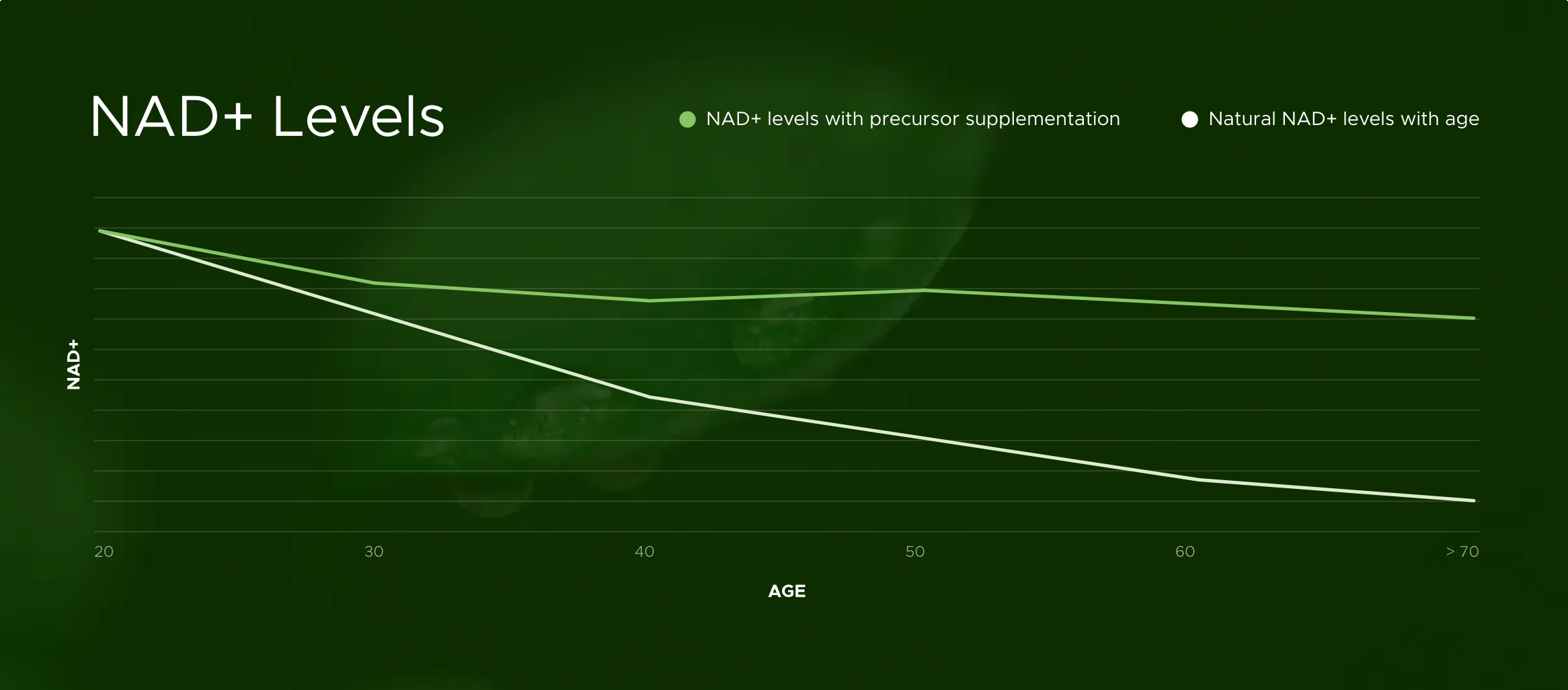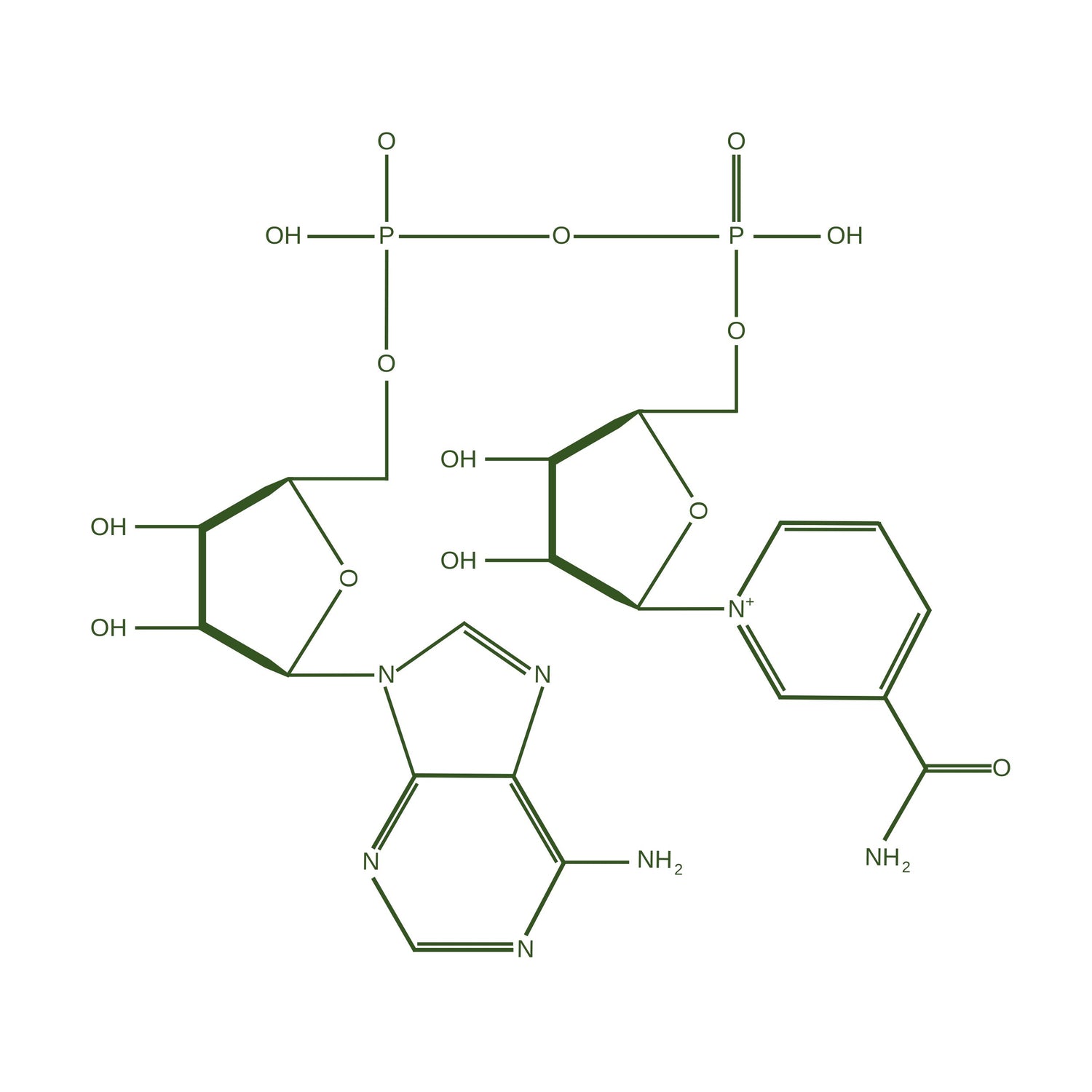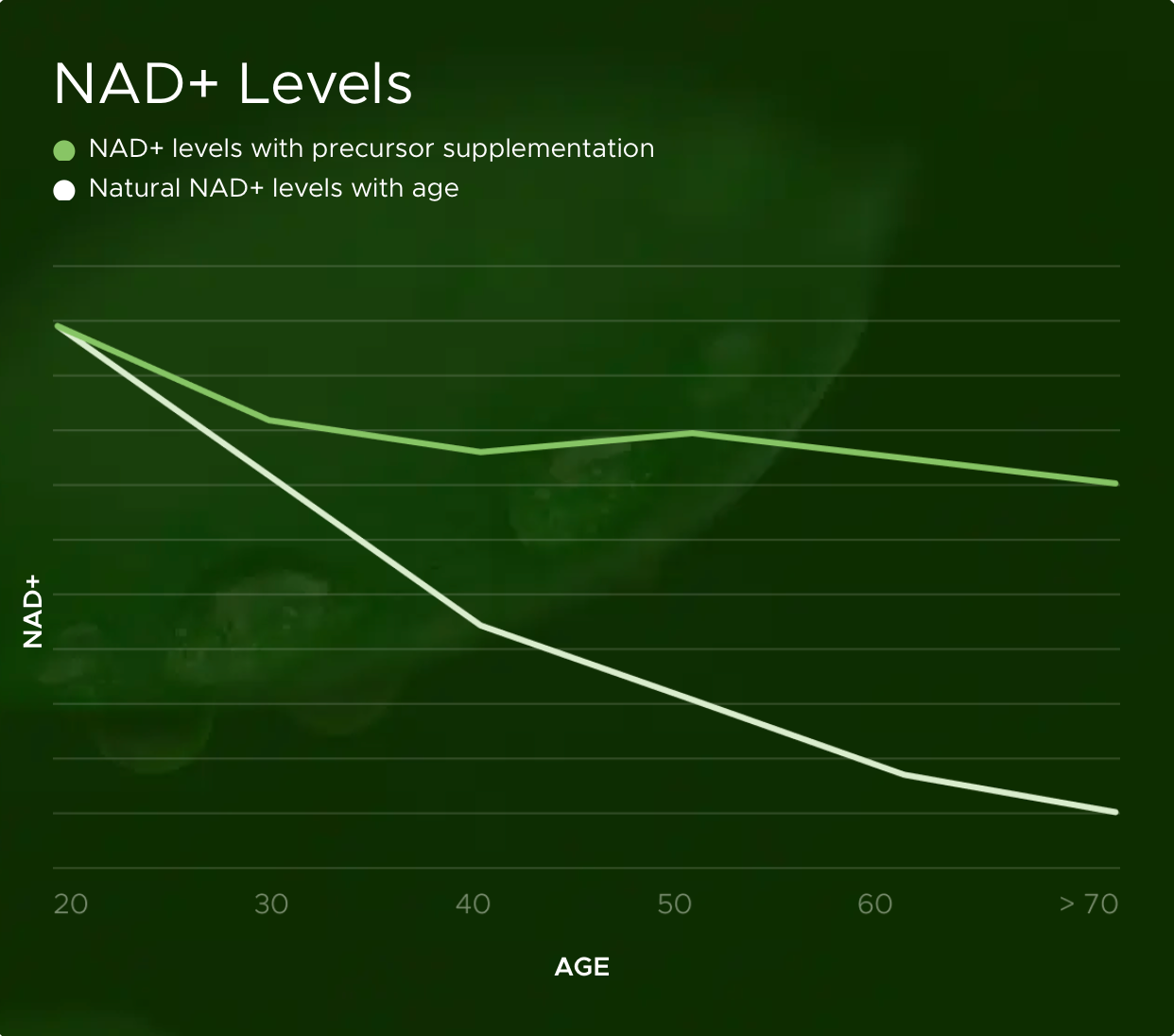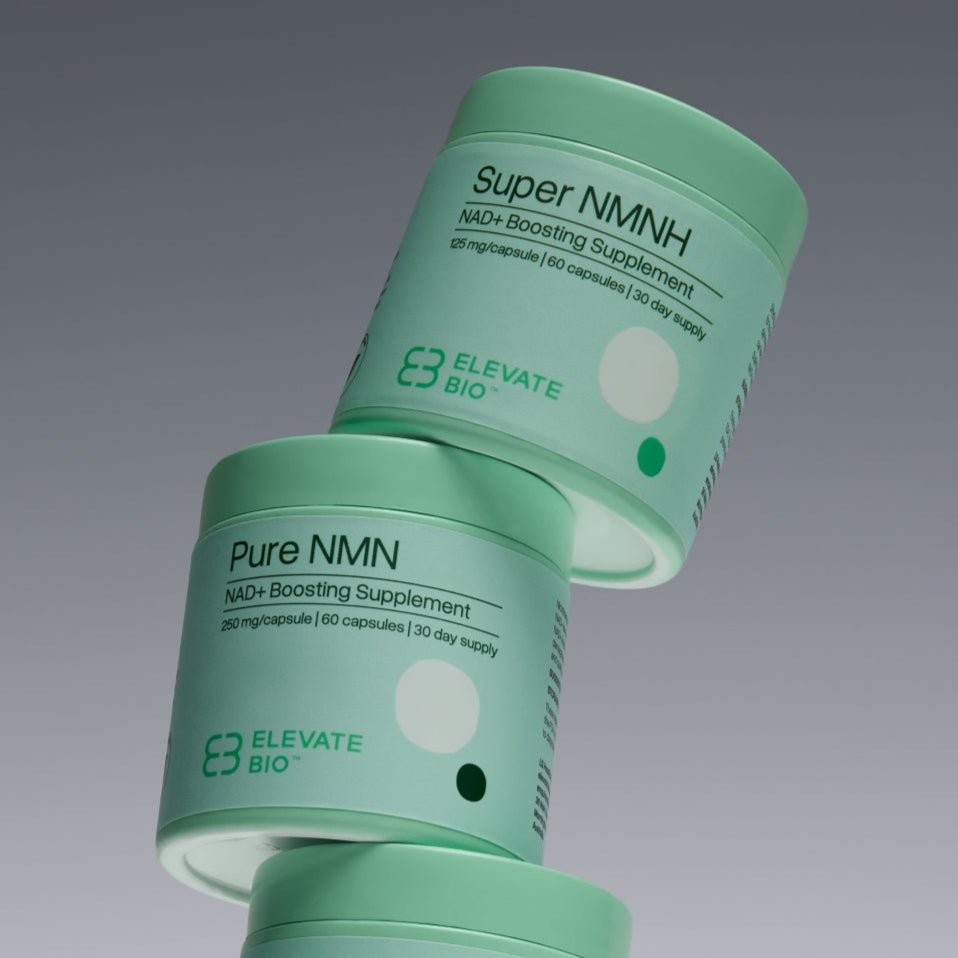

The Challenge of a Short Healthspan
While advancements in science have steadily increased lifespan, they haven’t extended healthspan, which is the period of life spent in good health. Ageing remains the biggest risk factor for poor health, leading to chronic conditions that affect the quality of life in later years.
We envision a future where people maintain independence, enjoy their favourite activities and spend quality time with loved ones well into their life.
Though many face declining vitality, recent scientific breakthroughs offer hope for ageing with energy, flexibility, and a continued sense of wellbeing.
The Hallmarks of Ageing
As we age, the structure, function and processes within our cells change. The scientific community widely recognises several key factors, known as the “Hallmarks of Ageing”:
-
Genomic Instability
-
Epigenetic Alterations
-
Telomere Attrition
-
Mitochondria Dysfunction
-
Altered Intercellular Communication
-
Stem Cell Exhaustion
-
Cellular Senescence
-
Deregulated Nutrient Sensing
-
Loss of Proteostasis
-
Disabled Autophagy
-
Inflammaging
-
Microbiome Dysbiosis
These hallmarks manifest externally through changes in skin elasticity, hair colour and pigmentation, and internally through issues like poor sleep, declining energy, altered autophagy, NAD+ levels and telomere structure.

Tailored Support for Biological Age
At ELEVATE™, we recognise that support needs differ at various stages of biological age. Our premium products are designed to provide targeted support based on your unique biological age or lifestyle factors. Our formulations support the ageing process in ways previous generations did not have access to, offering personalised solutions to enhance healthspan and improve overall wellbeing.
Traditionally, there are eleven body systems:
-
Nervous System
-
Skeletal System
-
Circulatory System
-
Integumentary System
-
Endocrine System
-
Digestive System
-
Respiratory System
-
Immune System
-
Muscular System
-
Renal System
-
Reproductive System
In addition to these eleven systems, supporting your cellular health is the foundation for overall healthy ageing. By taking care of your cells, you support all eleven other body systems, promoting comprehensive wellbeing.


What is NAD+?
NAD+ (Nicotinamide Adenine Dinucleotide) is found in every cell of the body that plays a crucial role in energy production and maintaining cellular health.[1]
NAD+ helps convert nutrients into energy and is responsible for critical cell functions, including cell growth, metabolism, DNA repair, and important biological processes.[2]

The Decline of NAD+
As we age, the natural level of NAD+ in our body declines. Evidence demonstrates that NAD+ levels reduce by approximately 50% every 20 years [3] This decline is linked to reduced energy, cellular function and signs of ageing. [4]
Although NAD+ can be boosted by diet,[5] diet alone will not completely revive the inadequate levels. Elevate’s NAD+ boosting supplements are designed to support replenishing adequate NAD+ levels in the body.

What is the Difference Between NMN and NMNH?
Pure NMN and Super NMNH both belong to the house of NAD+ boosting precursors, that support replenishing NAD+ levels in the body. [6]
While the two acronyms (NMN and NMNH) might appear similar and both belong to the house of NAD+ boosters, they refer to distinct compounds with varying roles and implications in the realm of health and biology.
To be notified of the latest peer-reviewed publications, please join our mailing list.
Collapsible content
References
- Bieganowski, P, & Brenner, C 2004 ‘Discoveries of Nicotinamide Riboside as a Nutrient and Conserved NRK Genes Establish a Preiss-Handler Independent Route to NAD+ in Fungi and Humans’, Cell, vol. 117, no. 4, pp. 495-502.
- ‘Recent research into nicotinamide mononucleotide and ageing’ 2022, Natural Portfolio, vol. 1, pp. 1.
- Shade, C 2020, ‘The Science Behind NMN – A Stable, Reliable NAD+ Activator and Anti-Aging Molecule’, Integrative Medicine, vol. 19, no. 1.
- ‘Recent research into nicotinamide mononucleotide and ageing’ 2022, Natural Portfolio, vol. 1, pp. 1.
- Sinclair, D & LaPlante, M 2019, Lifespan: Why We Age – and Why We Don’t Have To, Harper Collins Publishers, Dublin, Ireland, pp. 135.
- Liu, Y, Luo, C, Li, T, Zhang, W, Zong, Z, Liu, X & Deng, H (2021), ’Reduced Nicotinamide Mononucleotide (NMNH) Potently Enhances NAD+ and Supresses Glycolysis, the TCA Cycle, and Cell Growth’, Journal of Proteome Research, vol. 20, no. 5, pp. 2596-2606.
